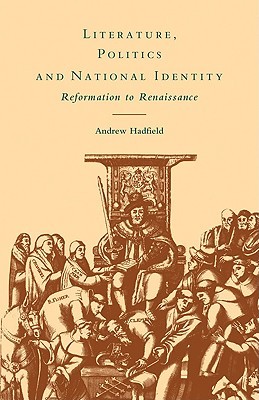
- We will send in 10–14 business days.
- Author: Andrew Hadfield
- Publisher: Cambridge University Press
- ISBN-10: 0521118859
- ISBN-13: 9780521118859
- Format: 14 x 21.6 x 1.6 cm, softcover
- Language: English
- SAVE -10% with code: EXTRA
Reviews
Description
For many years C. S. Lewis's dismissal of the sixteenth century as a 'drab age' influenced literary scholars. Andrew Hadfield offers a challenging reinterpretation, through study of the work of some of the century's most important writers, including Skelton, Bale, Sidney, Spenser, Baldwin and the Earl of Surrey. He argues that all were involved in the establishment of a vernacular literary tradition as a crucial component of English identity, yet also wished to use the category of 'literature' to create a public space for critical political debate. Conventional assumptions - that pre-modern and modern history are neatly separated by the Renaissance, and that literary history is best studied as an autonomous narrative - are called into question: this book is a study of literary texts, but also a contribution to theories and histories of politics, national identity and culture.
EXTRA 10 % discount with code: EXTRA
The promotion ends in 17d.19:38:43
The discount code is valid when purchasing from 10 €. Discounts do not stack.
- Author: Andrew Hadfield
- Publisher: Cambridge University Press
- ISBN-10: 0521118859
- ISBN-13: 9780521118859
- Format: 14 x 21.6 x 1.6 cm, softcover
- Language: English English
For many years C. S. Lewis's dismissal of the sixteenth century as a 'drab age' influenced literary scholars. Andrew Hadfield offers a challenging reinterpretation, through study of the work of some of the century's most important writers, including Skelton, Bale, Sidney, Spenser, Baldwin and the Earl of Surrey. He argues that all were involved in the establishment of a vernacular literary tradition as a crucial component of English identity, yet also wished to use the category of 'literature' to create a public space for critical political debate. Conventional assumptions - that pre-modern and modern history are neatly separated by the Renaissance, and that literary history is best studied as an autonomous narrative - are called into question: this book is a study of literary texts, but also a contribution to theories and histories of politics, national identity and culture.


Reviews